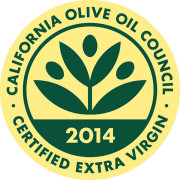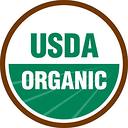The good news about olive oil – a cornerstone of the heart-healthy Mediterranean Diet and one of my most-recommended superfoods – just keeps coming. Even the FDA now recognizes that:
“Limited and not conclusive scientific evidence suggests that eating about 2 tablespoons (23 grams) of olive oil daily may reduce the risk of coronary heart disease due to the monounsaturated fat in olive oil. To achieve this possible benefit, olive oil is to replace a similar amount of saturated fat and not increase the total number of calories you eat in a day.”
Between its rich monounsaturated fatty acid content and its vitamin, antioxidant and polyphenol potential, olive oil offers premium quality nutrition for your body and heart. Some olive oils, however, are simply better than others.
By following these 5 guidelines, you can make sure your olive oil is of the best quality and the healthiest it can be:
1. Don’t Settle for Less Than Extra Virgin or Cold-Pressed Olive Oil
The best olive oils are “cold pressed” or “extra virgin” – besides organic certification, these are the highest standards for olive oil, for both taste and health benefits.
“Cold pressed” means the oil was extracted by mechanically pressing the olives, without the help of solvents or excessive heat, which can degrade the oil. To be labeled “extra virgin,” an olive oil must be 100 percent cold pressed olive oil – no additional ingredients, just pure olive juice. Extra virgin denotes that the olive oil meets purity specifications that only the freshest and healthiest olives can deliver.
Together, these standards not only help capture the olive oil’s full, distinctive favor, but they allow the oil to retain a higher percentage of the antioxidant polyphenols that give cold-pressed olive oil its many health benefits. If you like olive oil for its health-enhancing properties, this is significant. Lesser grades of olive oil – “light,” “virgin,” and other varieties—aren’t held to the same standards. They can be processed in more industrial ways that can lead to oxidation. Always choose cold-pressed or extra virgin, which will have the highest polyphenol content among all the grades of olive oil because of how they are made.
If you’re shopping for flavored olive oils, look for cold-pressed (as flavored olive oils are not technically “extra virgin” because they are made with other ingredients besides olives).
2. Opt for California Olive Oil
 This state may be best known for its sun, surf, and vineyards, but it’s also my go-to source for the best-olive oils—outperforming Europe and other more traditional olive-growing regions.
This state may be best known for its sun, surf, and vineyards, but it’s also my go-to source for the best-olive oils—outperforming Europe and other more traditional olive-growing regions.
A few years back, several stories were published exposing the fact that many extra virgin olive oils were actually a mixture of olive oil and other less expensive oils, such as soybean and canola. The problem affected a whopping 69 percent of imported oils, according to the 2010 University of California–Davis study that broke the news.
California olive oil producers, whose products performed significantly better on the UC–Davis tests, responded to the bombshell by forming the California Olive Oil Council (COOC), a trade association that now certifies the purity and quality of extra virgin olive oil. To earn the seal, each harvest must meet chemical analysis requirements and satisfy the palates of a blind tasting panel. The end goal being, as their website states, “to provide consumers and retailers with assurance that the oil they purchase is in fact extra virgin grade.”
This is a long way of saying that when shopping for olive oil, it’s best to buy American – Californian, specifically. Given the failures of European quality control, along with the time European oils spend aboard ships making their way to our ports, it just makes sense. Plus, buying COOC-certified olive oil again helps ensure that the product on your dining room table will have the fewest impurities and deliver the health benefits you expect.
3. Choose Organically Produced or Certified Organic Olive Oil
With most produce, we buy organic whenever possible to avoid pesticide residues, and in some cases (papaya and yellow squash, for example) GMOs. Although some fruits and veggies – like strawberries, apples, peaches, and spinach – have been shown to contain higher amounts of pesticides than others, I err on the side of caution and choose organic whenever it’s an option to ensure that the produce is of the highest vibration. And I do so not just with fresh, whole fruits and veggies, but with oils and sauces that are made with them.
 To find organic olive oils, look for the green and white USDA certified organic seal. That seal is a sure-fire way of knowing that the oil has been produced without the use of synthetic pesticides or fertilizers, and is GMO-free.
To find organic olive oils, look for the green and white USDA certified organic seal. That seal is a sure-fire way of knowing that the oil has been produced without the use of synthetic pesticides or fertilizers, and is GMO-free.
If you’re buying from a small farm, local grower or small batch producer whose products aren’t certified organic ask about their farming or production practices – do they follow organic standards? Are pesticides ever used? I know of many “smaller guys” who produce clean, healthy products without chemical shortcuts, who simply have not pursued organic certification (it can be cost prohibitive).
4. Use a Bottle within a Few Months and Keep It in the Dark to Maximize Olive Oil Shelf Life
Although olive oil shelf life can vary depending on the harvest date and how the bottle is stored, I try to use up an open bottle within three or four months. This is because, after opening, the oil will start to oxidize. You don’t want to use olive oil that’s been sitting opened on your shelf for a year. I’ve found that writing the date on each bottle when it’s opened helps me keep track of this (and is also a useful strategy for knowing how long opened jars, such as pasta sauce or salsa, have been in your fridge). Pro tip: buy smaller size bottles.
For best taste and maximum shelf life, store cold-pressed olive oil in a dark bottle, and keep it away from windows and hot cooking surfaces. When you’re shopping, opt for a green or other dark colored glass bottle over a clear bottle. You can also transfer the oil to a ceramic container – anything that keeps light out – but this will start the clock on oxidation, so my preference is to keep it in the original bottle.
Generally, there’s no need to refrigerate olive oil; room temperature storage is adequate. However, if you find yourself in the middle of a heat wave without air conditioning, pop your stash in the fridge to keep it from degrading.
5. Drizzle, But Don’t Sizzle at High Temps
The most beneficial way to consume olive oil is straight out of the bottle. Toss it with veggies or salads, or mix it with a blend of dipping spices and eat it with steamed veggies or bread. You can cook with olive oil, but I’d avoid doing so at high temperatures (for example, sautéing veggies and meats is okay, but frying chicken is a no-no).
When olive oil starts to smoke and burn, you know you’ve reached the “smoke point,” the temperature line you don’t want to cross because the antioxidant compounds that help make it so healthy in the first place start to degrade. Olive oil’s smoke point is between 400 and 460 degrees Fahrenheit (olive oils with high polyphenol content have lower smoke points, while more refined olive oils have higher smoke points). All cooking oils have a smoke point, some are more resilient than others.
Bottom line, as far as high-heat frying goes, I’m not a big fan of that with any oil. Plus, if you’re cooking vegetables, they retain far more of their nutritional value when minimally cooked or raw. It’s safe to cook with olive oil at moderately high temperatures, but I think olive oil is best enjoyed drizzled right from the bottle. Mangiare!
From my heart to yours,
What is our Top Recommended Olive Oil?
When searching the globe for the very best olive oils to offer at Vervana.com, Dr. Sinatra found Enzo’s Table to be the best source of Organic Extra Virgin Olive Oil, based on the above criteria. Enzo produces Extra Virgin and Flavored Olive Oils under the highest standards, and we are proud to now recommend Enzo olive oils to you. We sold them ourselves for over 7 years and continue to use them because we think they are THE BEST! We hope you enjoy them too.
AFFILIATE DISCLOSURE: This page contains affiliate links. Should you purchase products after clicking on them, we may earn commissions. Such commissions help fund the continued operation of this web site. We only recommend products Dr. Sinatra, himself, used and /or sold.
References and resources:
- California Olive Oil Council
- California Olive Oil Council. Certification process.
- Beck, L. Smoke Point Matters when Cooking with Oil. The Globe and Mail, Sept. 28, 2015.
- LI, Xueqi et al. Changes in Chemical Compositions of Olive Oil Under Different Heating Temperatures Similar to Home Cooking. Journal of Food Chemistry and Nutrition, [S.l.], v. 4, n. 1, p. 07-15, june 2016. ISSN 2307-4124.
© HeartMDInstitue.com. All rights reserved. Originally published at Vervana.com in 2017.












